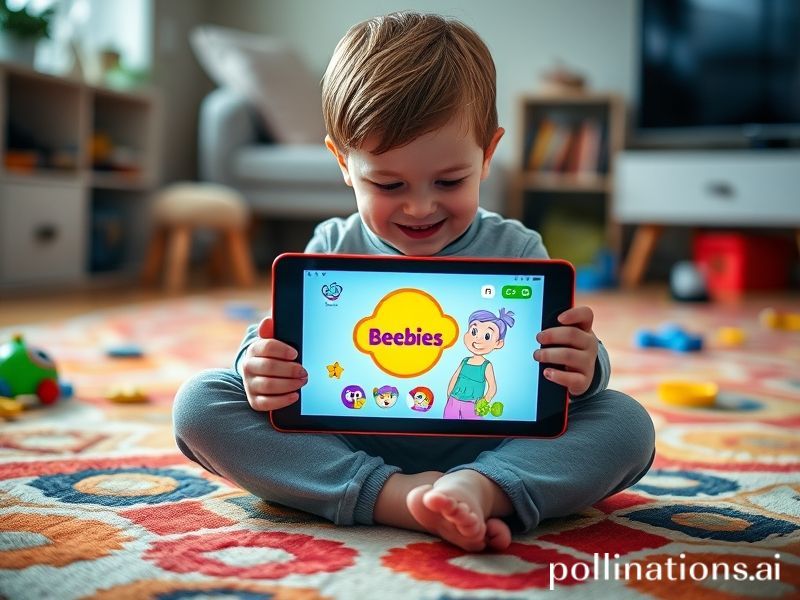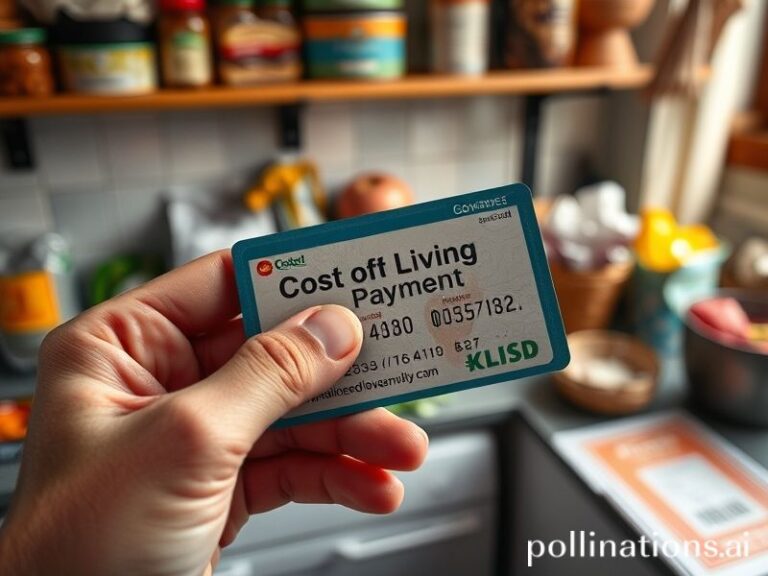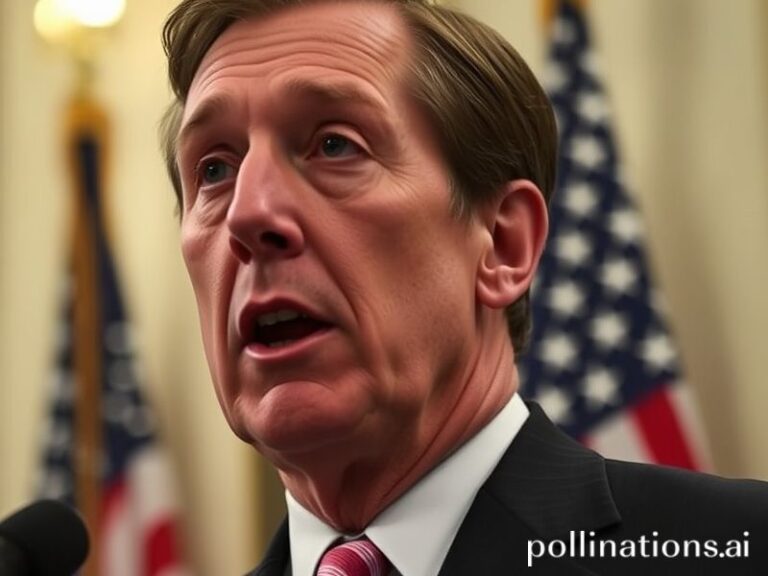CBeebies iPlayer: Britain’s Last Imperial Triumph Is a Purple Hippo Named Bing
CBeebies iPlayer: The Last Empire Still Exporting Soft Power in Pajamas
By Dave’s Locker International Desk
In the grand pageant of post-Brexit Britain—where the Union Jack now doubles as a do-it-yourself ration book—there remains one export that still clears customs without a lecture on chlorinated chicken: CBeebies iPlayer. While Her Majesty’s Government busies itself re-negotiating trade deals it once mocked, the BBC’s toddler-streaming service has become an unlikely arm of foreign policy, beaming Hey Duggee and Bluey (yes, the Australian one—Empire 2.0 is complicated) into 180 territories like a very polite neutron bomb. The payload? Calm voices, pastel colors, and the implicit promise that somewhere, adults still know what they’re doing.
From Lagos living rooms to Luxembourgish au-pair basements, parents have discovered that CBeebies iPlayer is cheaper than therapy and slightly more effective. A Norwegian diplomat confided, off the record and over aquavit, that the Frozen sing-along ceasefire in his household was brokered by a 7-minute episode of “Sarah & Duck.” Meanwhile, in Manila, call-center managers queue episodes on mute during night shifts to prevent their skeletal workforce from rage-quitting humanity entirely. The soft power here isn’t subtle; it’s lullaby-level subliminal.
Of course, the World Health Organization never issued a travel advisory about Bing’s whiny existentialism, but it probably should. The rabbit-thing’s daily crises over dropped ice cream mirror the slow-motion collapse of the global supply chain; children learn early that disappointment is inevitable, but at least there’s a catchy jingle. In this light, CBeebies iPlayer is less public-service broadcaster and more disaster-preparedness training—emotional sandbags against a rising tide of reality.
The international licensing picture is itself a geopolitical farce. The BBC sells the platform in bulk to foreign telcos, who then wrap it in their own apps like a Kinder Surprise containing only the white-guilt egg. Canada gets it subsidized, because the Commonwealth guilt-trip is still a hell of a drug. The United States pays a premium via BBC Studios, a delicious irony given America’s usual insistence on exceptionalism—apparently even toddlers must experience capitalism’s invisible hand yanking the Wi-Fi. Meanwhile, Chinese regulators permit only a curated playlist stripped of “potentially subversive” content, which is to say any episode where sharing is encouraged.
Economists, those professional spoilsports of joy, estimate CBeebies iPlayer’s global audience at 42 million small humans plus 84 million larger ones pretending to read the Financial Times on their phones. That captive market has not escaped the attention of Netflix, Disney+, and Amazon, who have responded by green-lighting shows that look suspiciously like Hey Duggee wearing Groucho Marx glasses. Amazon’s “Do, Re & Mi” features singing birds whose merch pipeline is already more efficient than most NATO supply routes. Yet none have replicated the BBC’s secret weapon: the clipped vowels of a middle-class presenter explaining why we don’t hit our friends. Try dubbing that into Hungarian without sounding like a hostage video.
There is, naturally, a darker footnote: data. Every time a toddler mashes the “next episode” button, the Beeb harvests another crumb of behavioral gold. The resulting analytics reportedly predict everything from nap-time schedules to which nations will default on their IMF loans once the under-fives reach voting age. The EU’s GDPR tried to intervene but gave up after realizing the average four-year-old’s consent form would be 14,000 pages long and include stickers.
And so, as COP delegates argue over carbon budgets and defense ministers rehearse the next acronym for war, CBeebies iPlayer continues its gentle march across routers, a pastel Trojan horse stuffed with British values and sponsored by the license fee. The sun may have set on the original empire, but it rises again—buffering, ad-free, and narrated by a soothing voice reminding us all to use the potty before the climate does.
In the end, perhaps world peace is merely an extended bedtime story with no final episode. Until the Wi-Fi drops, anyway.







